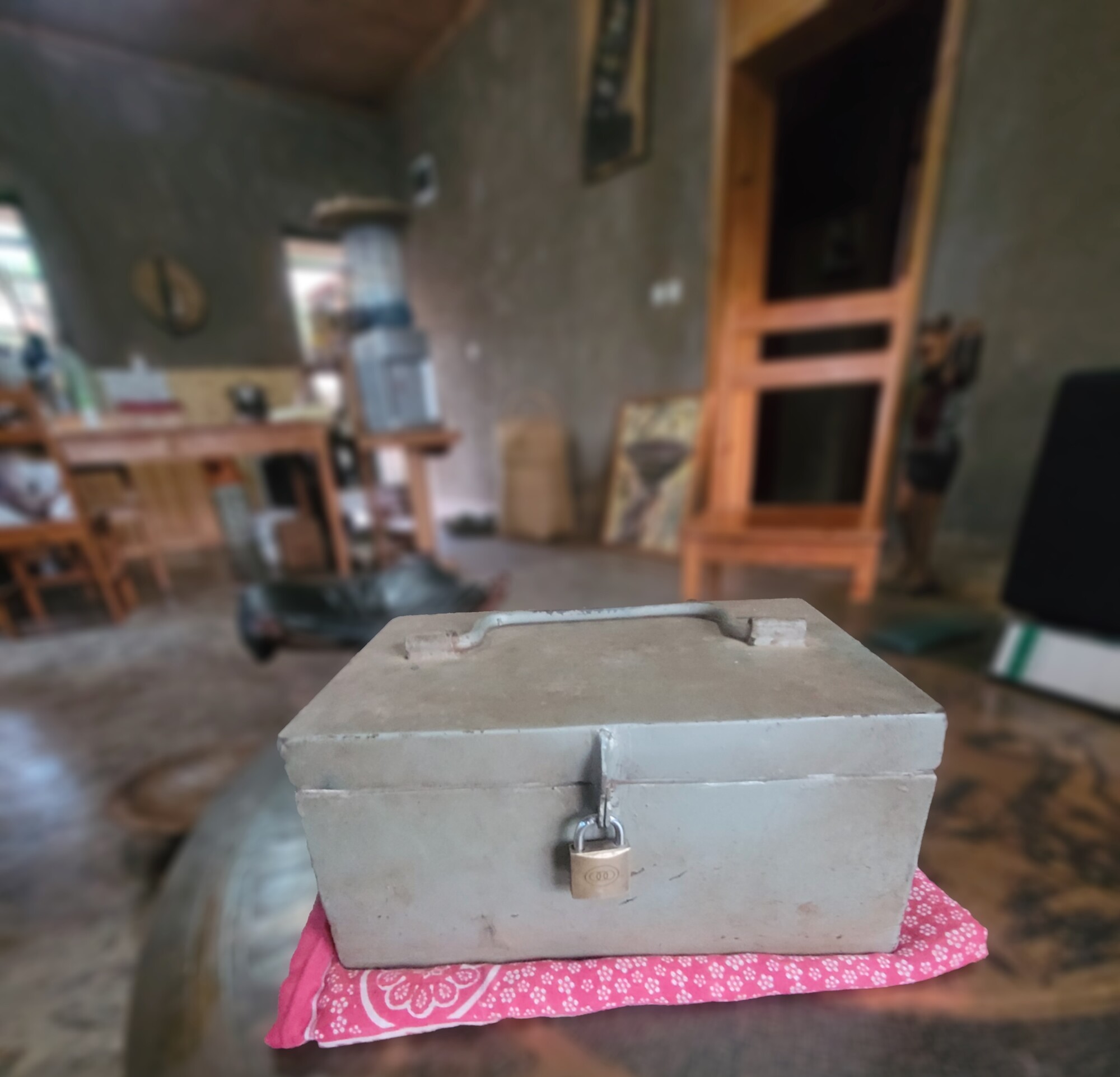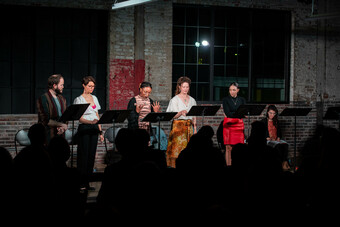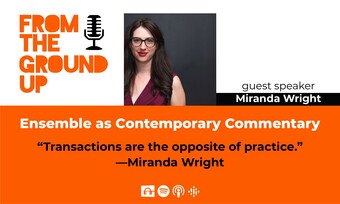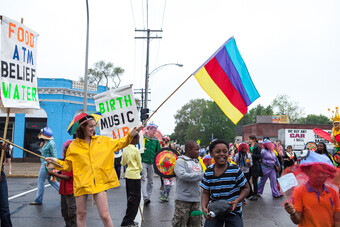I was sitting with my aunt this summer and telling her about all the work I’d been doing, which she and the rest of my family had inspired. I told her about building systems to invest in collective practice; how young artists without generational wealth can bet on themselves, take risks and build careers; about all the lawyers who were helping me work on how to build a home space for such practices in the developer nation of New York City. We were in her little house and farm on the outskirts of Kigali in Rwanda. She keeps moving further out trying to avoid the sprawl of the city, which continues to envelop her every few years.
I was proud. She’s such an inspiration, a bad ass, a revolutionary—like literally participated in revolutions, the type of woman to get banned from countries. I told her about doing nimble audience work at institutional scale, what it was like to fill an opera house with vastly Muslim audiences for a piece about an Islamic scholar, about trusting what I know and not getting seduced by extra zeros at the end of numbers or flimsy obsessions with permeance signifying impact in the field. She nodded her head. She said “ooh la la.” (She smuggled herself to Paris to go to the Sorbonne, so whenever she says things in French it’s with this colonial irony—you can tell if she’s just making fun of you.) Finally, she says, “Sweetheart, I have a meeting, help me move this table, go sit.” I thought I’d come to have lunch with her. But I do what I’m told, on my Sisyphean journey of being a good Rwandan daughter, and I sit.
People from the neighborhood village started to trickle in: an older man who owned a few goats and sold milk and meat; two young guys who sell mobile phone credit from a small clapboard kiosk down the road; three women who decided to farm the tiny bit of land between their houses together (not a compound, just a shared patch of dirt they harnessed into tiered farming); and so on. They put a large metal box on the table.
The Set of Practices We Call Home

The lockbox in Kaneza’s aunt’s home.
Everyone took out booklets, which accounted for the fifty cent to ten dollar contributions they had made, pooling resources to invest in each other’s business and lives—who had borrowed what, what small interest was due the group.
It hit me like a ton of bricks.
Here I’ve been thinking about spaces of home, how we’ve lost all alternative arts spaces to the rise of the “permanent alternative,” how there are no independent artist-run houses anymore.
But home has never been brick and mortar.
Home has always been the set of practices between us.
On every scale—the scale of artist to artist collectivities, and the scale of all of us in this ecosystem: presenters, administrators, artists, funders, producers.
Real talk: people working inside institutions, for a moment—y’all are broke? No? Most of you have unprecedented deficits, no? Even all our sexy friends with their governments who believe in the arts across the various ponds. And even y’all with the structural deficits that are just baked into the math and the reserve funds—the old tools for patching those holes aren’t working. This year, more than most, we're all out here talking about new works and it feels like the house is on fire and we are chatting about fabric options for new curtains.
The thing we know better than most is that what we do is never done alone.
The danger I see in our global processing of war, our national election year terror, the immediate and existential crisis that is global warming—there is a move right now to get a gun and sit on the porch, proverbially, strap up and go it alone.
But the thing we know better than most is that what we do is never done alone. For live performance more than any other form—we create from collectivity and we give unto collectivity.
Today means something.
It can.
This is an ecosystem; how do we invest in it as such?
Let go of “going it alone.” That is a mighty task for intuitions, particularly 501c3s with boards of devout capitalists with supremist notions of permeance and fantasies of independence.
But all you brilliant humans inside institutions, you are gonna wield these beasts into honoring that we are in an ecosystem.
We are in it together.
Talk about poetry: Under The Radar, home of independent art, becoming independent, and doing so though the ecosystem of many institutions leaning into the interdependence inherent to fostering experimentation.
For every work I start with a question. I build a team to ask that question with me—ideally a lot of different kinds of folks who work in different ways. This is part of why working in international contexts is critical to my practice, why working in different mediums is critical to me.
Lately I’ve been thinking about war—how we process war. Around the world, whether we are in Honduras, or Cox’s Bazaar, or Cairo—we have war on our minds. Being in Rwanda this summer, we are twenty-five years out, and still: individually, collectivity, politically, spiritually—processing war. Art and performance have always been used for this process, for thousands of years: tomb paintings in Luxor, the Iliad, the Ramayana. We have mighty artists today who continue in that tradition, doing this work for our contemporary moment. My next team will gather around these ideas—Ocean Voung, Tuan Andrew Nguyen, Christopher Myers.
When I look into this room at you all, I see the thing I love best: a group of different kinds of people, who work in different kinds of ways, trying to ask some hard questions.
My provocation to you is that lock box. How do we do it together? For ten minutes, may we lay down the mantle of our 501c3 capitalist empires, our individualistic American training, our singularity obsessions, our premieres mentality. And really consider, in unprecedented times, how do we do this together? We are actually good at this. All of us.
Thank you.










Comments
The article is just the start of the conversation—we want to know what you think about this subject, too! HowlRound is a space for knowledge-sharing, and we welcome spirited, thoughtful, and on-topic dialogue. Find our full comments policy here